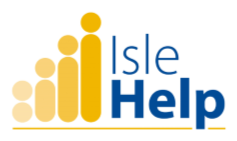Working for yourself:
If you start working for yourself, you’re classed as a sole trader. This means you’re self-employed – even if you haven’t yet told HM Revenue and Customs (HMRC).
Running a business:
You’re probably self-employed if you:
- run your business for yourself and take responsibility for its success or failure
- have several customers at the same time
- can decide how, where and when you do your work
- can hire other people at your own expense to help you or to do the work for you
- provide the main items of equipment to do your work
- are responsible for finishing any unsatisfactory work in your own time
- charge an agreed fixed price for your work
- sell goods or services to make a profit – including through websites or apps
You can be both employed and self-employed at the same time, for example if you work for an employer during the day and run your own business in the evenings.
Registering as self-employed:
If you’re self-employed, you may need to set up as a sole trader.
Help From Citizens Advice Tax Team:
Citizens Advice IW have a Tax Team who can help self-employed persons with a range of issues, from working tax credit to self-assessments.
For more information or email us at
Helpful Links:
gov.uk/topic/business-tax/self-employed
(Updated 21/10/21)

